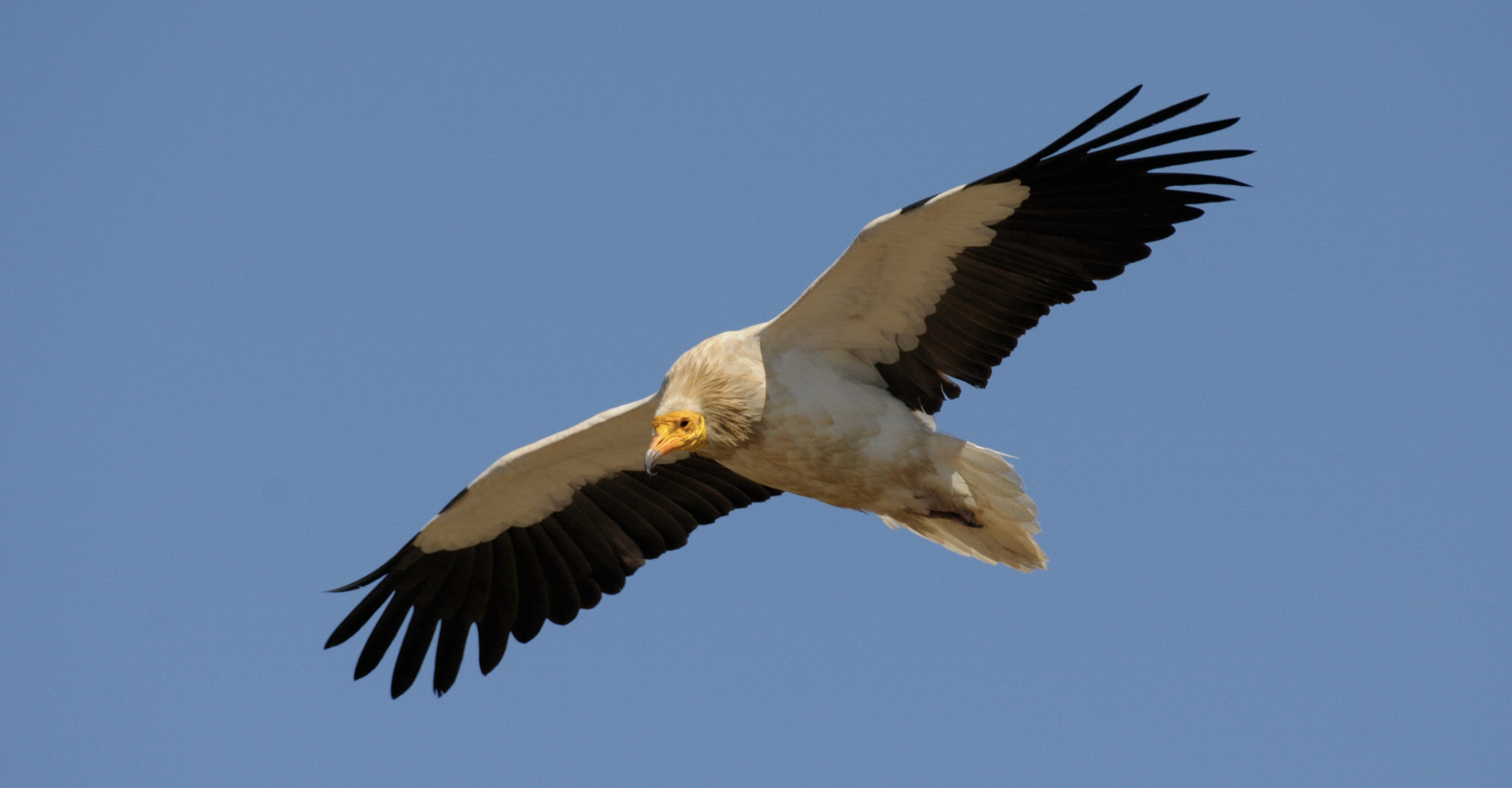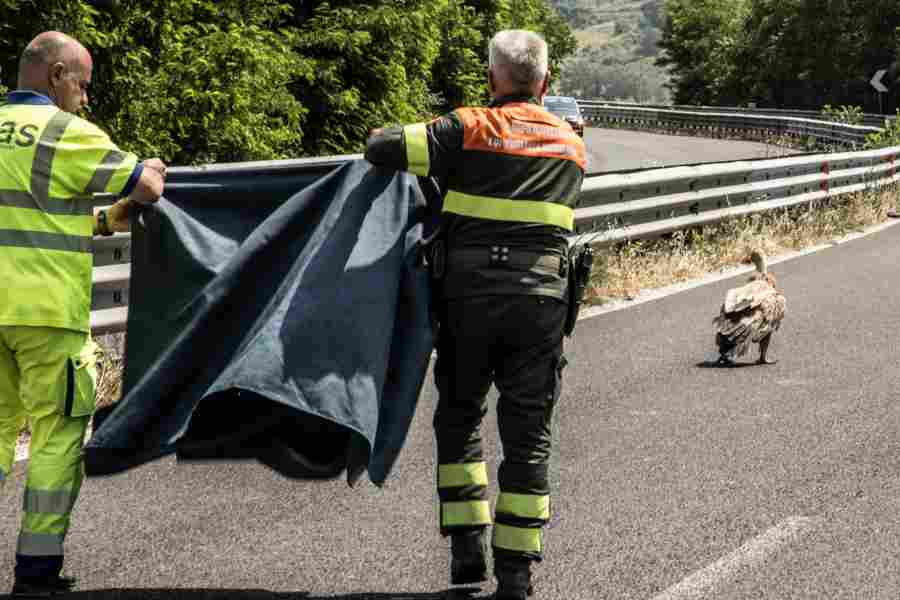
Things seem to be looking up for vultures in Israel – from an Egyptian Vulture nest discovered in a region after almost 60 years of absence to conservation efforts that see success after success.
Raising the next generation of Israel’s vultures

With the vulture population facing a constant decline, vulture eggs laid in captivity are usually sent to Hai-Bar Nature Reserve on Carmel Mountain or Jerusalem Biblical Zoo where a team of experts work diligently to make sure the chicks survive.
The team at Hai-Bar Nature Reserve reserve helps boost the Griffon and Egyptian vulture population in Israel, and Ynetnews gave us an insight into their hard work with their recent visit.
Watch a day in the life of vultures at the Hai-Bar Nature Reserve
So what is the process to ensure vulture chicks grow healthy and independent? First of all, the vultures start their day with a very early breakfast – small pieces of meat for the chicks and whole carcasses for the grown-ups who visit. The chicks get fed manually four times a day, then two and then once as they grow up. When they reach 120 – 140 days old, they begin to eat on their own in an open cage. As they continue to grow, they eat full carcasses similar to the ones they would encounter in the wild. Finally, ahead of their release to the wild, they spend one to two years in a cage that imitates their future wildlife surroundings to get used to life in the wild.
To become independent, the team is always quiet, feeding the vultures by a puppet with a stuffed head that imitates their mothers, so that they don’t get used to human interactions. Furthermore, since vultures are social animals, they place a grown-up vulture next to the cage of chicks to get used to their species.

Yigal Miller of Israel’s Parks and Nature Authority, who’s in charge of the project gives us a further insight of the social behaviour of captive-bred vultures released, stating: “vultures are social animals, they come and visit their friends that still live in reserve cages. They come back and spend time here, and even stay over for a slumber party on the roof sometimes.”

Latest vulture news in Israel
In May, there was both positive and negative news for Israel’s vultures.

The Griffon Vulture population at Golan Heights that had already declined from 130 birds in 2006 to just 20 in 2019 collapsed further due to a recent mass poisoning incident. On the morning of Friday 10 May, eight Griffon Vultures were found dead in Golan Heights due to poisoning, nearly wiping out their population. And in addition to the eight killed, two more vultures were found poisoned, but they were thankfully nursed back to health.

Two weeks after the mass poisoning tragedy, Israel received some great news when a rare Egyptian vulture nest was discovered in the Carmel region in northern Israel, setting some impressive records! Firstly, it’s the first nest in the region in almost six decades after the species was thought to have vanished from the area. Secondly, it’s the first nest in the world of an Egyptian vulture pair that was raised in an incubation centre, more specifically in the Hai-Bar Carmel Nature Reserve. The mother was born in 2011 and was released one year later, and the father was born in 2014 and was released at the end of that year – both were released in Carmel.
Stay up to date with all vulture news by following us on Facebook and Twitter!



